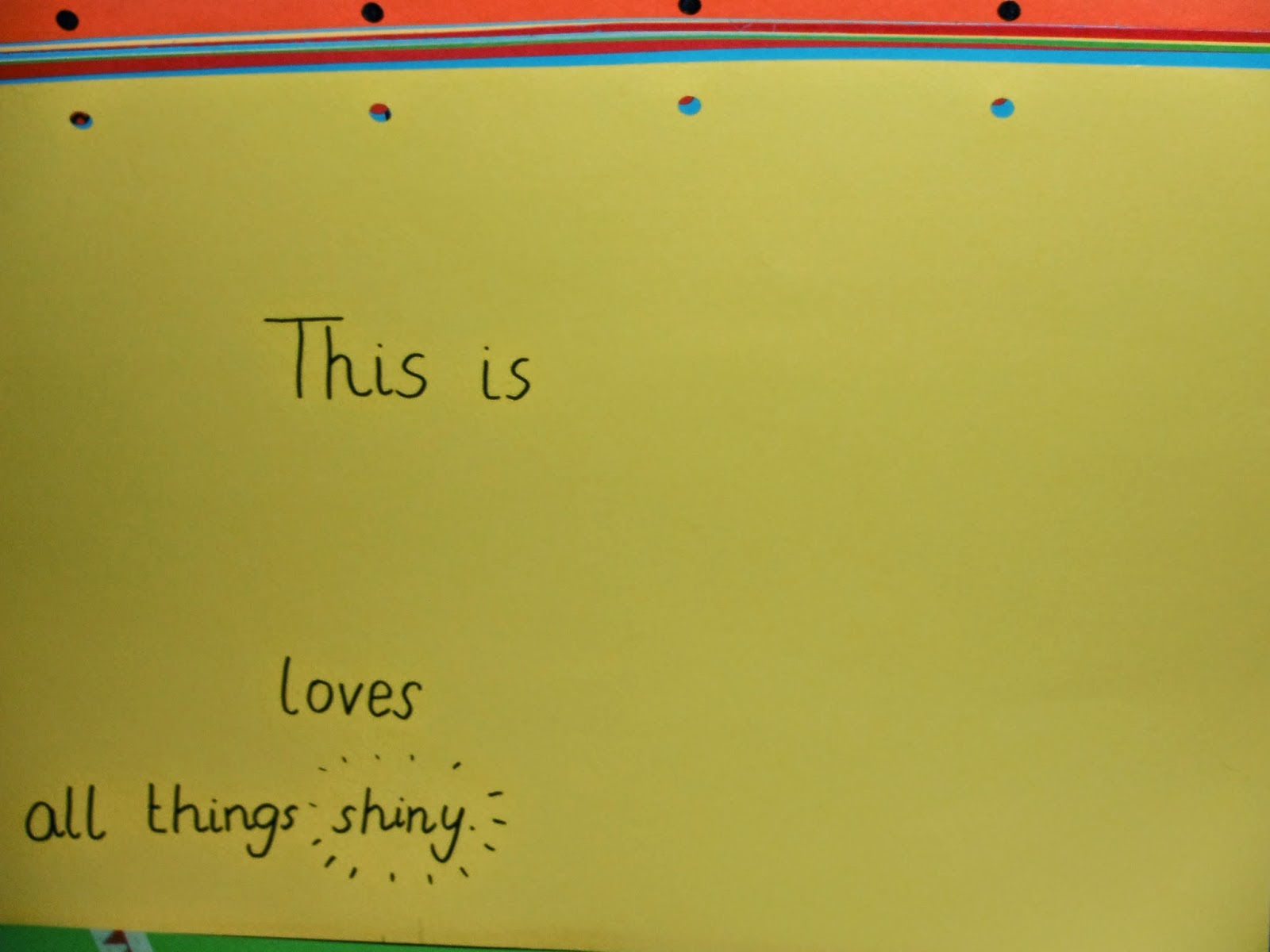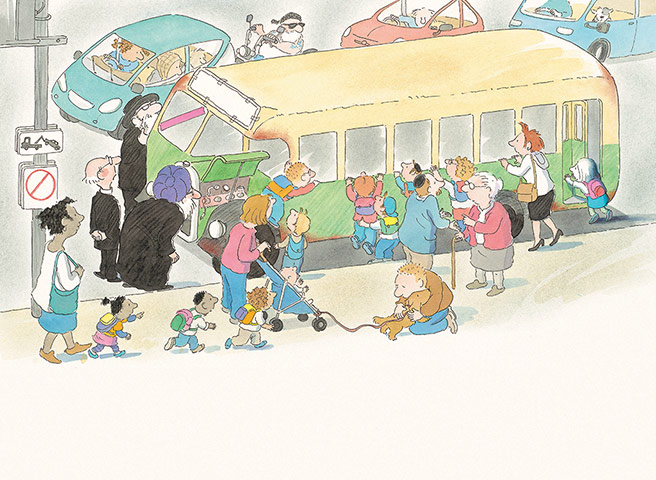Back in December, I was invited in our local school to tackle the intimidating task of entertaining 24 Senior Infants three days before the trip to the panto, one week before the school play and two before Christmas.
I wanted to do a writing workshop that would be fun and not too much like work. I also wanted it to be a collective event, involving not only them (as a class) and me, but also all 24 kids individually.
Usually, I meet older groups, where pretty much every one is able to come up with a story and write it themselves in a quite a short period of time. But with Senior Infants, no matter how bright (and these were, of course, fabulous), writing is still physically difficult and takes time. We only had an hour, which was not enough to do anybody's creativity justice.
So, I cheated. Let me repeat that: I CHEATED.
I came up with a hybrid solution where I did most of the writing and they filled in the blanks.
I wrote a story (a Christmas one, of course) about a character who had to go looking for baubles to put on their tree. I put the text on big colourful sheets of paper, made up pictures with wrapping-paper cut-outs and print-outs from some of my own books, and left a few blanks on each page: the protagonist had no name; there was no picture of him/her; the night sky was lacking stars, etc.
I had selected 3 possible heroes (a dino, a princess and a cat), all from my published stories. For each spread, I had prepared an envelope with what was going to be needed to complete it: stickers, cotton wool for snow, a hat for our hero, a home-made bauble...
When we got to business, I asked one boy to take a paper out of a hat. The lucky dip gave us our heroine whom we named (after a collective brainstorming and a vote) Pixie. Pixie's pic was duly and expertly glued by a team of kids on that first page, as well as the "shiny things" the text said she loved. Pixie was later joined by Rex the dinosaur and Jack the cat.
On every page, there was something for the audience to do and comment on.
Icing on the cake (but it was only fair), the cover had their name on it:
I hear they spent some time reading it together snuggled under the class Christmas tree...

























